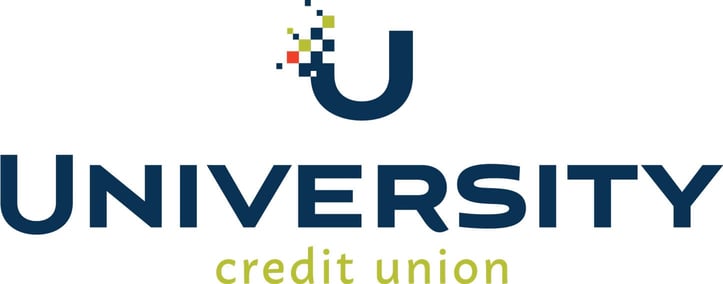
Our experts and industry insiders blog the latest news, studies and current events from inside the credit card industry. Our articles follow strict editorial guidelines.
In a Nutshell: Technology allows consumers to interact with their financial institutions without entering a physical branch. University Credit Union provides its members access to innovative digital products and financial education. The credit union has banking hubs on select university campuses in California. University Credit Union’s virtual assistant can answer members’ inquiries and offer financial advice.
Institutions of higher learning provide instruction and resources to equip students with tools to become who they want to be. American universities are also hotbeds for ideas and movements that influence business and culture.
In 1950, a dozen employees of the University of California, Los Angeles (UCLA) desired to create a better banking experience via a member-owned financial cooperative. The employees started a credit union in 1951 to serve their needs and those of their community.
The employees finalized the credit union’s charter documents in a building on UCLA’s campus named Royce Hall, and University Credit Union was born. We spoke with Dr. David Tuyo II, University Credit Union’s CEO and President, to learn more about the credit union’s innovative solutions and efforts to support the communities it serves.

Tuyo said a trailer on UCLA’s campus initially served as the main office of University Credit Union (UCU). As the university expanded and on-campus space became increasingly scarce, UCU’s leaders reasoned the credit union’s headquarters didn’t need to be on UCLA’s campus, Tuyo said.
UCU then moved its headquarters to an off-campus location in Los Angeles’s Westwood neighborhood. Tuyo said UCU has maintained operations at its Westwood location for more than 70 years.
Tuyo said UCU doesn’t employ a traditional banking model that starts by serving one geographic location and then expands its operations to serve surrounding regions. UCU serves members affiliated with select universities.
The credit union has established branches on college campuses throughout California. UCU’s branches, or banking hubs, serve members on the campuses of UCLA, Saint Mary’s College, Santa Clara University, the University of California, Davis, and the University of California, San Diego.
“Our banking hubs are really micro branches,” Tuyo said. “We staff them in a variety of ways based on the size and needs of the campus they’re on. And every campus we serve is different.”
Personalized Cards Promote School Pride
Tuyo said UCU also serves members on campuses where the credit union doesn’t have a physical branch. UCU has served members affiliated with Pepperdine University since 1993. Tuyo said the credit union offers digital-first solutions to the Pepperdine community.
“When you think about Los Angeles and the surrounding areas, there are a lot of traffic issues here,” Tuyo said. “People don’t want to spend more time in their cars than they have to, so we let our members decide if they’d prefer to access our solutions in a digital environment.”
Tuyo said the digital services UCU provides help members do business with the credit union. UCU offers virtual appointments to members desiring to meet with specialists within UCU’s mortgage, commercial lending, and commercial accounting departments.
UCU’s employees work in 17 states across the U.S. Tuyo said the company offers its employees the ability to work remotely to improve their quality of life.

“We strive to give each member of our team the ability to live their best life,” Tuyo said. “Part of that is allowing employees to work from where they want to work. I’m really proud to be part of a company that supports its team like we do here at UCU.”
UCU is migrating its card portfolio to a new processor. Tuyo said the transition will allow UCU’s members to access modern card capabilities such as digital provisioning. The credit union’s enhanced digital services extend convenience to its members, Tuyo said.
UCU’s members can select designs for their credit and debit cards that reflect their school pride. Tuyo said university-branded cards build a sense of belonging among the credit union’s members.
“We try to make sure our products and services are not only best of breed but also branded in a way that helps support the overall community we’re serving,” Tuyo said. “University-branded cards allow our members to be part of something larger than themselves.”
Artificial Intelligence Enhances Customer Service
UCU works with its members to guide them toward strategies to improve their personal financial management. Tuyo said UCU guarantees that the advice it provides to members is unbiased, conflict-free, and offered by an expert.
UCU offers members a plethora of financial products. Tuyo said UCU specializes in product offerings that are innovative and competitive.

“Every single product and service we offer is going to rank in the top 5% compared to our competitors’ offerings,” Tuyo explained. “Our core focus is something we call the five c’s, and it includes checking accounts, credit cards, castles, which is our term for anything related to real estate, consolidation loans, and consumer loans.”
UCU harnesses the power of artificial intelligence to provide customer service. Tuyo said UCU’s virtual assistant can help members complete transactions and assist them with tasks such as registering for online banking services and locating UCU branches and ATMs.
UCU’s virtual assistant, Royce, is named after the building where UCU’s founding members established the credit union in 1951. Tuyo said Royce answers every call a member makes to the credit union’s call center and can assist 25% of callers without transferring their calls to a live representative.
“The number one reason members reach out to our call center is to get their account balance,” Tuyo said. “And that’s something that’s true for any bank or credit union in the world. You don’t need to talk to a certified expert to get a balance — that’s where our virtual assistant can step in. Royce helps us increase our operating efficiency and ultimately improves our bottom line.”
Educational Tools Improve Financial Health
UCU is planning to introduce an internal virtual assistant to help its employees find answers to questions about bank procedures, products, and services. Tuyo said UCU’s internal virtual assistant will increase the accuracy and speed in which the credit union can serve its members.
“An internal virtual assistant is particularly valuable to an organization such as ours with a remote workforce,” Tuyo said. “The majority of our call center team works out of their homes from locations across the country. They don’t have someone sitting next to them to help them find answers to questions. With our internal virtual assistant, we’re using artificial intelligence to expedite the service we provide to our members.”
UCU provides its members with tools to improve their financial health. The credit union offers guides to help members learn how to create budgets, manage debt, and plan for retirement.
Royce also provides personalized recommendations to members, and Tuyo said Royce’s advice can substantially impact a member’s financial health.
“If a member is carrying a credit card balance for a number of months, Royce can recommend options to them that will help them manage their balance and boost their credit score,” Tuyo said.
Tuyo said UCU leverages technology to manage the consistent growth it has experienced in recent years. UCU focuses on minimizing operating costs, and the intelligent use of technology helps the credit union reduce expenses, Tuyo said.
“Technology allows us to grow without aggressively increasing staffing levels,” Tuyo said. “Though it’s expensive, the returns we see indicate technology can be a tremendous investment that enables us to be responsible leaders who act in our members’ best interests.”



![12 Credit Cards that Offer Free Checked Bags ([updated_month_year]) 12 Credit Cards that Offer Free Checked Bags ([updated_month_year])](https://www.cardrates.com/images/uploads/2020/02/Credit-Cards-that-Offer-Free-Checked-Bags.jpg?width=158&height=120&fit=crop)
![11 Banks That Offer Secured Credit Cards ([updated_month_year]) 11 Banks That Offer Secured Credit Cards ([updated_month_year])](https://www.cardrates.com/images/uploads/2022/12/Banks-That-Offer-Secured-Credit-Cards.jpg?width=158&height=120&fit=crop)
![Chase Refer-A-Friend Offer: Earn Bonus Points ([updated_month_year]) Chase Refer-A-Friend Offer: Earn Bonus Points ([updated_month_year])](https://www.cardrates.com/images/uploads/2018/05/refer.png?width=158&height=120&fit=crop)
![9 Expert Solutions: Build Credit Without a Credit Card ([updated_month_year]) 9 Expert Solutions: Build Credit Without a Credit Card ([updated_month_year])](https://www.cardrates.com/images/uploads/2018/05/without2.png?width=158&height=120&fit=crop)